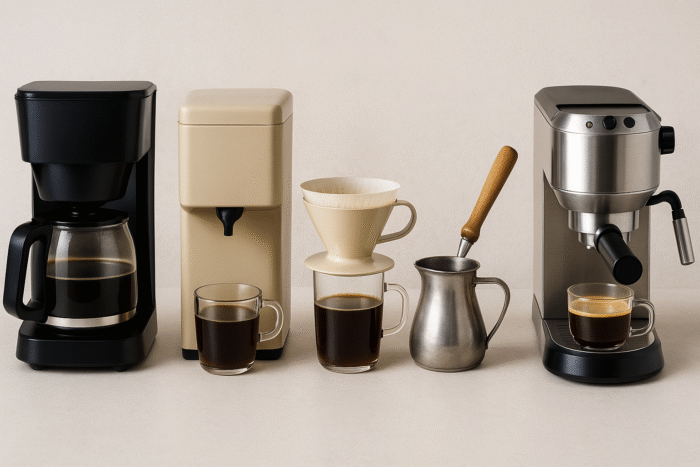Dubai, August 9, 2025 – (Qahwa World) – A new Swedish study has raised fresh concerns about how workplace coffee machines could be silently impacting heart health. Researchers from Uppsala University and Chalmers University of Technology have found that the way coffee is brewed plays a decisive role in determining its effect on cholesterol levels—particularly low-density lipoprotein (LDL), often called “bad” cholesterol.
The peer-reviewed study, published in Nutrition, Metabolism & Cardiovascular Diseases, examined the presence of two naturally occurring coffee compounds—cafestol and kahweol—that are scientifically linked to higher LDL cholesterol. While coffee itself is not harmful, and can even lower the risk of certain diseases, these compounds have been shown to counteract some of coffee’s potential benefits when consumed in high amounts.
Why Workplace Machines Pose a Risk
Araştırmacılar, ofislerde ve kamu binalarında yaygın olarak kullanılan ve genellikle kağıt yerine metal filtreler kullanan self-servis kahve makinelerine odaklandılar. Bu filtreleme seçiminin çok önemli bir fark yarattığını keşfettiler. Kağıt filtreler kafestol ve kahweolün çoğunu fincana ulaşmadan önce hapsediyor, ancak metal filtreler bu bileşiklerin çok daha fazlasının geçmesine izin veriyor.
Lead researcher Dr. David Iggman explained that some modern workplace machines produce coffee with diterpene levels comparable to boiled coffee—an unfiltered brewing method that Nordic dietary guidelines have advised against since 2023.
The Numbers Tell the Story
Over the course of the study, the team analyzed coffee from 14 workplace machines and compared it with various home-brewing methods. Their findings revealed stark contrasts:
-
Workplace brewing machines (n = 11): median cafestol 176 mg/L, kahweol 142 mg/L
-
Liquid-model machines (n = 3): much lower, median cafestol 8 mg/L, kahweol 7 mg/L
-
Home paper-filtered coffee: median cafestol 12 mg/L, kahweol 8 mg/L
-
Boiled coffee: cafestol 939 mg/L, kahweol 678 mg/L
-
French press / espresso: intermediate to high levels, with espresso showing large variability—sometimes exceeding 2,400 mg/L of cafestol in a single sample.
These differences are not just academic. Using established cardiovascular risk models, the researchers estimated that replacing three cups of machine-brewed coffee per workday with paper-filtered coffee could lower LDL cholesterol by approximately 0.58 mmol/L—a reduction associated with a 13% drop in cardiovascular risk over five years, and as much as 36% over a 40-year career.
A Brewing Method Matters as Much as the Beans
The study reinforces a growing body of evidence that how coffee is prepared is as important as the type of beans or roast when it comes to health outcomes. While specialty coffee lovers often focus on flavor profiles and origin stories, this research underscores that the choice of brewing equipment—especially in workplace environments—can have long-term health implications.
The researchers suggest that organizations could improve staff wellness simply by switching to machines that use paper filters, or by encouraging employees to brew filtered coffee at home and bring it to work.
Global Relevance Beyond Sweden
Çalışma İsveç'teki işyerlerine odaklanmış olsa da, bulguları özellikle French press, Türk kahvesi veya espresso gibi filtrelenmemiş kahve yöntemlerinin kültürel olarak baskın olduğu bölgelerde küresel olarak geçerlidir. Birçok ülkede, kurumsal sağlıklı yaşam programları halihazırda daha sağlıklı gıda seçeneklerini teşvik etmektedir; kahve demleme yönergelerinin entegre edilmesi uygun maliyetli bir ek olabilir.
Balancing Enjoyment and Health
Coffee remains one of the world’s most consumed beverages and a source of pleasure for millions. This research does not suggest giving it up, but rather making informed choices about brewing methods to maximize health benefits while minimizing risks.
In the words of Dr. Iggman: “The way coffee is brewed has a measurable effect on cholesterol. By making small changes in preparation, we can keep coffee both enjoyable and heart-friendly.”
The post Swedish Study Links Workplace Coffee Machines to Higher Bad Cholesterol Levels appeared first on Qahwa World.




